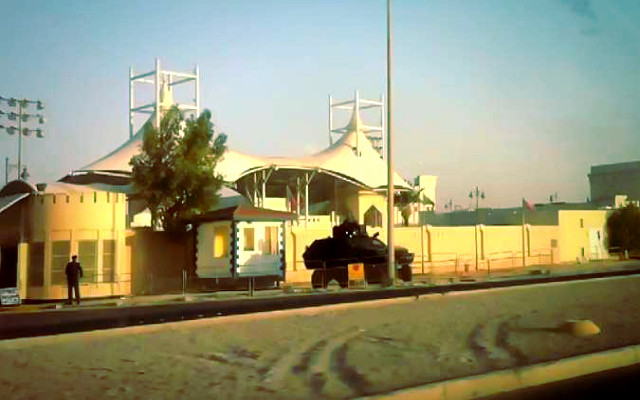Mr. Rapporteur,
Americans for Democracy & Human Rights in Bahrain, the Bahrain Institute for Rights & Democracy, and the Bahrain Center for Human Rights, would like to raise our concern over States’ violations of international fair trial standards. We are particularly concerned with the wider effects of systematic abuses over time.
For example, in Bahrain, the judiciary has long suffered from strong interference by the government, has regularly failed to uphold fair trial standards, and systematically uses torture to coerce false confessions to convict thousands of prisoners to arbitrary prison sentences in dangerously over-crowded prisons.
In response to these measures, this week, prisoners in Bahrain’s Dry Dock Detention Center – which houses over a thousand pre-trial detainees – have staged a strike demanding an end to torture and ill-treatment in detention, accountability for abuses, and that convicted prisoners have the right to a retrial under international standards of fair trials.
Recalling that last year, similar grievances ultimately resulted in a prison riot and subsequent collective punishment resulting in mass torture and a sharp decline in prison conditions and treatment that rose to the level of a humanitarian crisis, these issues are truly urgent in Bahrain.
In addition to systematic failings that lead to these conditions, we also remained concerned with acts of intimidation and reprisals against human rights lawyers and their families, as part of the larger issue of attorney interference in the GCC.
For example, in April 2011, Bahraini security forces arrested and tortured prominent Bahrain lawyer and human rights defender, Mohamed al-Tajer. On 5 November 2015, Bahraini security forces arrested Mohamed’s brother, Ali al-Tajer. They held Ali incommunicado for 25 days. They repeatedly tortured Ali all over his body and forced him to blindly sign a confession, which was used against him in trial.
Mr. Rapporteur, how do you recommend that States work to address not only the direct effects of judicial abuses, like the intimidation of lawyers, but also to provide remedy for victims of the types of systematic abuses seen by the striking prisoners at Dry Dock Detention Center?
Thank you.





